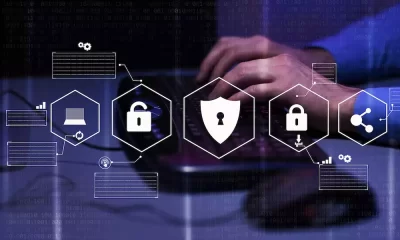Security
Greater Demand For Internet Expert Witnesses
Choosing a new career when you’ve been working for twenty or more years is a scary prospect for many people. However, there is one profession in particular that rewards years of industry-related experience, knowledge and networks, and it’s also in high demand – an Internet expert witness.
The rise of cybercrime, leaking of customer data, and eCommerce legal requirements have many companies fretting about how to reassure their clients they’be got it all covered.
Giving up our personal information is risky, and all consumers want to know how the business requesting it will look after it. Plus if an illegal activity does happen, customers want full transparency to know what action has been taken to remedy vulnerabilities in systems, networks etc. as well as if the offenders when found and subject to legal proceedings.
Internet Expert Witness Role
An Internet expert witness can be called on to perform many tasks arising from forensic activity to auditing and representation for prosecution or defense in court cases.
According to Peter Kent Expert Witness, no two cases are exactly the same. Therefore an Internet expert witness needs broad knowledge of commercial sites including eCommerce, online content, marketing, networking, and maybe also software development. Plus the relevant compliance requirements and laws that govern digital practices.
Testifying is an entirely different discipline that expert witnesses acquire with training and practice. No one wants a nervous expert witness.
Websites are the engine room of business today, and they need to be secure in much the same way as making sure your workplace has a good lock on the door.
Of course, there’s a lot required to assure customers you’ve got security, and privacy sorted. For example, all data captured must be safe from cybercrime, and there are many ways it can be stolen.
Cybercriminals are one step ahead, so preventing every conceivable threat is impossible. Therefore it is vital businesses reassure their customers they are doing all they can to keep hackers out customer data safe, and their websites secure.
Types of Internet Threats
There are external threats to online assets where vulnerabilities can also be exposed via remote working and use of devices. There are also internal threats, too from rogue employees or contracted workers.
Internal
Internet threats come from employees who have gone rogue, usually due to financial stress, or changes in personal circumstances. Some of the threats include:
- Stealing property assets
- False expenses claims
- IT security exploits
- Embezzlement
- Data theft
Employees going rogue due to a change in personal circumstances usually involves systemic stealing or false claims that have a monetary value. Often their activity is hard to detect especially when it’s small amounts. Proving their theft may rely on the expertise of an internet expert witness.
Data theft by employees, especially those leaving the business, is common and proving how it occurred and by whom can come down to computer forensic activity. Companies don’t like to believe or acknowledge the presence of data theft as it can damage their reputation. However, the activity is on the rise and in this article by Info Security, upwards of 70% of knowledge workers believe the data they import and access at work is theirs! Herein lies the challenge for business.
External
The common external threats include:
- Phishing
- Malware including ransomware
- SPAM
- Keylogging
We’re all used to SPAM in our email boxes, but phishing is a lot more sophisticated and types of malware, including ransomware, can destroy a business. What’s more 4th industrial revolution technologies like AI (artificial intelligence), machine learning and robotics are being used in cyberattacks.
Aggrieved entities view legal proceedings as the most obvious course of action, but it’s near impossible to catch cybercriminals and provide enough proof for a conviction.
First Line of Defense
Prevention measures are, therefore, the preferred action by sites which is why the internet security industry is in high demand.
Companies with so much of their business now online use antivirus and firewalls, MFA (multi-factor authentication), SSL encryption, to staff training and hiring of security professionals.
Whatever your business, it must have an online presence and also use online systems to seamlessly share information among departments, i.e. accounting, marketing, sales to customer support and technology.
Data sharing apps and systems can be accessed in the workplace or the home office by authorised users, and herein lies the challenge for IT security, how to manage external and internal threats.
Not every business gets it right, and cybercrime is growing. Working from home has been under enormous pressure with hackers exploiting vulnerabilities from attempts to get password resets on VPNs to phishing and spoofing. Zoom video conferencing has been exposed to security gaps, yet its paid service has risen 354% since COVID-19.
Business goes on, and threats are managed. When accused persons are up before the judge often it’s an Internet expert witness that proves their guilt or innocence.




